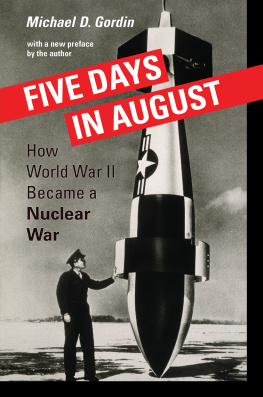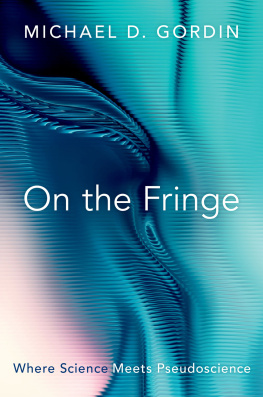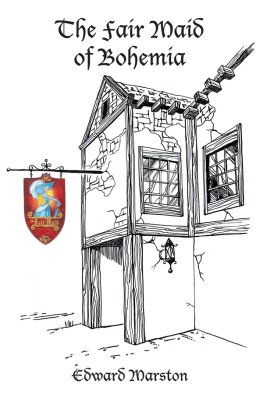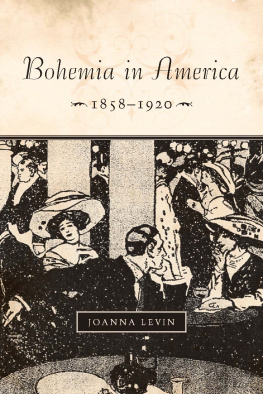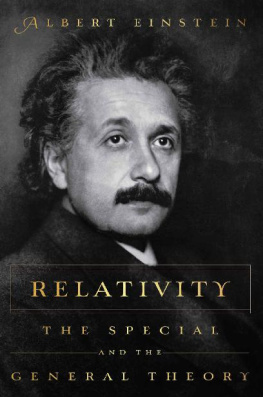Michael D. Gordin - Einstein in Bohemia
Here you can read online Michael D. Gordin - Einstein in Bohemia full text of the book (entire story) in english for free. Download pdf and epub, get meaning, cover and reviews about this ebook. year: 2019, publisher: Princeton University Press, genre: Art. Description of the work, (preface) as well as reviews are available. Best literature library LitArk.com created for fans of good reading and offers a wide selection of genres:
Romance novel
Science fiction
Adventure
Detective
Science
History
Home and family
Prose
Art
Politics
Computer
Non-fiction
Religion
Business
Children
Humor
Choose a favorite category and find really read worthwhile books. Enjoy immersion in the world of imagination, feel the emotions of the characters or learn something new for yourself, make an fascinating discovery.

- Book:Einstein in Bohemia
- Author:
- Publisher:Princeton University Press
- Genre:
- Year:2019
- Rating:5 / 5
- Favourites:Add to favourites
- Your mark:
- 100
- 1
- 2
- 3
- 4
- 5
Einstein in Bohemia: summary, description and annotation
We offer to read an annotation, description, summary or preface (depends on what the author of the book "Einstein in Bohemia" wrote himself). If you haven't found the necessary information about the book — write in the comments, we will try to find it.
Einstein in Bohemia — read online for free the complete book (whole text) full work
Below is the text of the book, divided by pages. System saving the place of the last page read, allows you to conveniently read the book "Einstein in Bohemia" online for free, without having to search again every time where you left off. Put a bookmark, and you can go to the page where you finished reading at any time.
Font size:
Interval:
Bookmark:
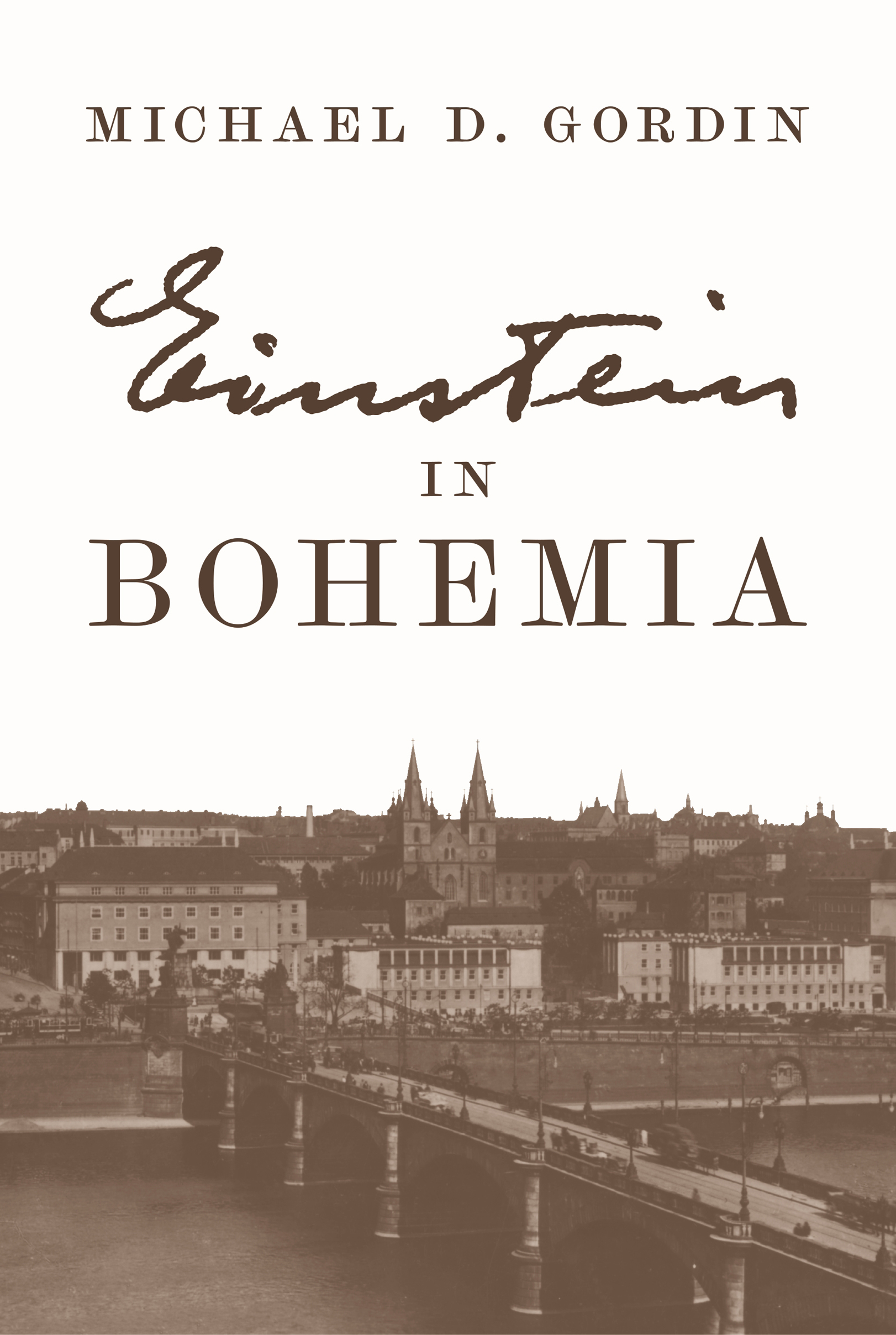
Einstein
IN
BOHEMIA
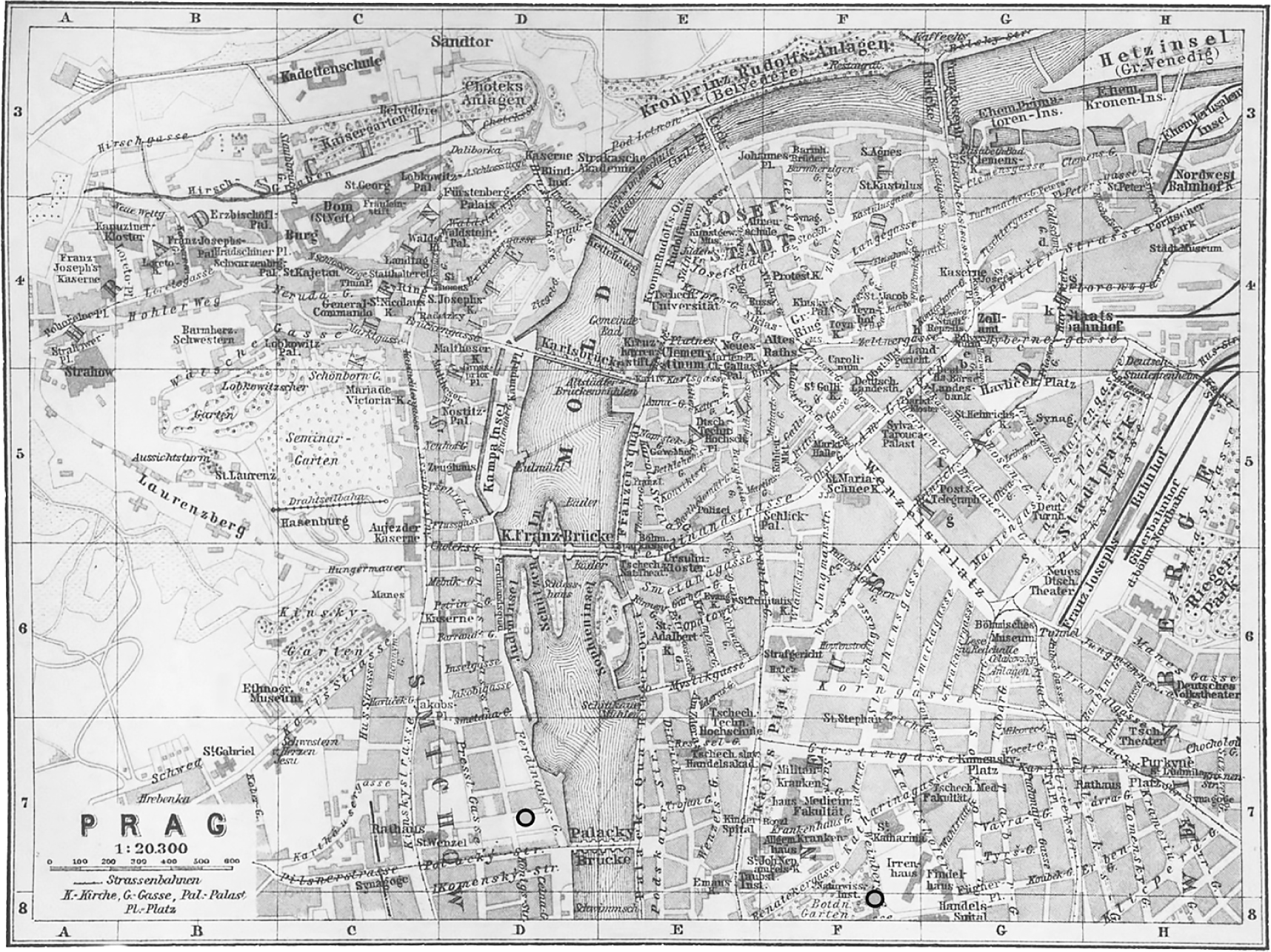
A map of central Prague from the 1910 Baedeker guide, the sort of source that Einstein himself might have turned to when contemplating his familys move to the city. The left circle indicates the location of Einsteins apartment in the city; the right his office at the Physical Institute. Given the provenance of this document, observe that the names of major Czech landmarks are rendered in German. Source: Karl Baedeker, sterreich: Handbuch fr Reisende, 28th ed. (Leipzig: Baedeker, 1910), 283.
MICHAEL D. GORDIN
Einstein
IN
BOHEMIA
PRINCETON UNIVERSITY PRESS
PRINCETON & OXFORD
Copyright 2020 by Princeton University Press
Published by Princeton University Press
41 William Street, Princeton, New Jersey 08540
6 Oxford Street, Woodstock, Oxfordshire OX20 1TR
press.princeton.edu
All Rights Reserved
ISBN 978-0-691-17737-3
ISBN (e-book) 978-0-691-19984-9
Version 1.0
British Library Cataloging-in-Publication Data is available
Editorial: Eric Crahan, Pamela Weidman, and Thalia Leaf
Production Editorial: Mark Bellis
Text Design: Lorraine Doneker
Jacket Design: Chris Ferrante
Jacket Credit: Panoramic view of Prague, with a view of Emmaus Monastery, the Church of the Virgin Mary, and Palack Bridge, ca. 1900s. Courtesy of Fotogen.
Spine Credit: Photograph of Albert Einstein by J. F. Langhans, Prague, 1912. Courtesy of Albert Einstein Archives.
To Peter Galison,
who first taught me to understand Einstein,
and then to understand him differently.
- ix
TERMS AND PRONUNCIATION
Naming conventions present an obstacle for any book that addresses the history of Prague during the late Habsburg Empire, and those issues get more problematic when the story extends into the twentieth century. I have made every effort to use the name appropriate to the time period and the actors concerned. Thus, the region of which Prague is the dominant metropolis was Bohemia, Czechoslovakia, Czecho-Slovakia, or the Czech Republic in different periods. Almost all toponyms had a German and a Czech variant. When there is a conventional name in EnglishPrague instead of Prag or PrahaI have always used that. For other sites, I have endeavored to always present both names, but I revert to the German spelling (Brnn for Brno) when presenting the point of view of a Germanophone person. For the same reason, the Vltava River is sometimes the Moldau in these pages, Vinin ulice the Weinberggasse, and so on.
Regarding peoples names, I have kept them in the form which was most customary for them in the primary context in which I discuss them. So a Czech-identified person would be Frantiek where a German-identified one would be Franz. Both names can be found in the scholarly literature. When there is a risk of confusion, I present both possibilities.
Czech orthography often presents challenges to the uninitiated. The accents represent the length of the syllable, and should not inhibit reading. Likewise, the circle over the u (i.e., ), is the same as an accented u. The haekwhat looks like an inverted circumflex over the crequires some attention, as does the letter c when unadorned. Here is a rough guide:
cts as in bats
tch as in batch
chch as in Bach
insert a y sound before the e, as in Byelorussia
gn as in gnocchi
close to the rg sound in bourgeois
sh as in brash
g as in Bruges
AEAAlbert Einstein Archives. Hebrew University of Jerusalem, Israel.
AEDAAlbert Einstein Duplicate Archive. Department of Rare Books and Special Collections, C0701. Princeton University Library, Princeton, New Jersey.
AUKArchive of Charles University, Ovocn trh 5, Prague 1, Czech Republic.
Cohen PapersRobert S. Cohen Papers. Howard Gotlieb Archival Research Center, Boston University, Boston, Massachusetts.
CPAEThe Collected Papers of Albert Einstein, vols. 115 (Princeton, NJ: Princeton University Press, 19872018). This is an ongoing project, currently under the editorship of Diana Kormos Buchwald. So far, the volumes extend to May 1927 in Einsteins life. All volumes are available open access at https://einsteinpapers.press.princeton.edu.
HFCHanna Fantova Collection of Albert Einstein. Rare Books and Special Collections, C0703. Princeton University Library, Princeton, New Jersey.
LBILeo Baeck Institute Archives, New York City.
MA AV RMasarykv stav a Archiv Akademie vd esk republiky, Gabkova 2362/10, Prague 8, Czech Republic.
NOKNachla von Oskar Kraus. Forschungsstelle und Dokumentationszentrum fr sterreichische Philosophie, Universitt Graz, Austria.
Struik PapersDirk Struik Personal Papers. Institute Archives and Special Collections, MC 418, Massachusetts Institute of Technology, Cambridge, Massachusetts.
YVSYad Vashem Archives, Jerusalem, Israel.
All unattributed translations are my own. The online version of the CPAE offers access to all the original texts cited, as well as an alternative translation.
Einstein has become a symbol for many, a monument people have built, a symbol that they need for their own comfort.
Leopold Infeld
Albert Einstein is dead. Bohemia, too, no longer exists. They have ascended to the realm of myths and legends, become words to conjure withyet they are not, in general, invoked together. Legends have their own structure and rhythm, their own dominion over portions of our vast cultural landscape, and these two resonate with different groups, adding distinctly separate auras of fascination to anything they brush up against.
For 16 months, from early April 1911 to late July 1912, Albert Einstein lived in Prague. Many people, including fans of Einstein lore or devotees of Pragues unquestionable charm, skip over this fact. It was, after all, such a short time, and quite early in the physicists career too. Einstein was only 32 years old when he arrived in the city, and there was no hint of the international celebrity he would later attain. If you turn to just about any biography of Einstein, the Prague year (and a quarter) is handled with streamlined efficiency. How relevant could 16 months be? Historians have dismissed it as an interlude, a sojourn (sometimes a brief one), a detour, a way station, and, most frequently, with Italianesque brio, an intermezzo.
We should not be so hasty. For many historical icons whom we associate very specifically with the central places in their biographies, a closer look reveals that a short period spent in an unexpected locale early in their lives transformed their worldviewsand they in turn transformed our world. James Joyce is almost inseparable from the Dublin he immortalized in his fiction or the Paris where he lived and wrote in his prime, but from 1904 to 1915 he lived on and off in Trieste, then a Habsburg port city, and the impact that these periods had on him is unquestionable. Mohandas Gandhi transformed India using the political techniques he had developed as a lawyer in South Africa, yet his few years studying for the bar in London in the late 1880s profoundly structured his vision of the British Empire and his sense of India. Mary Wollstonecraft, English philosopher and apostle of womens rights, was deeply marked by her unexpected firsthand view, in the early 1790s, of the bloody Terror in Paris. The examples multiply dramatically when we come to the massive displacements caused by the Russian Revolution, the Great Depression, and the rise of Hitlers regime. Einstein would be exiled by the last of these as well; Prague was an earlier, less noticed, displacement.
Font size:
Interval:
Bookmark:
Similar books «Einstein in Bohemia»
Look at similar books to Einstein in Bohemia. We have selected literature similar in name and meaning in the hope of providing readers with more options to find new, interesting, not yet read works.
Discussion, reviews of the book Einstein in Bohemia and just readers' own opinions. Leave your comments, write what you think about the work, its meaning or the main characters. Specify what exactly you liked and what you didn't like, and why you think so.

